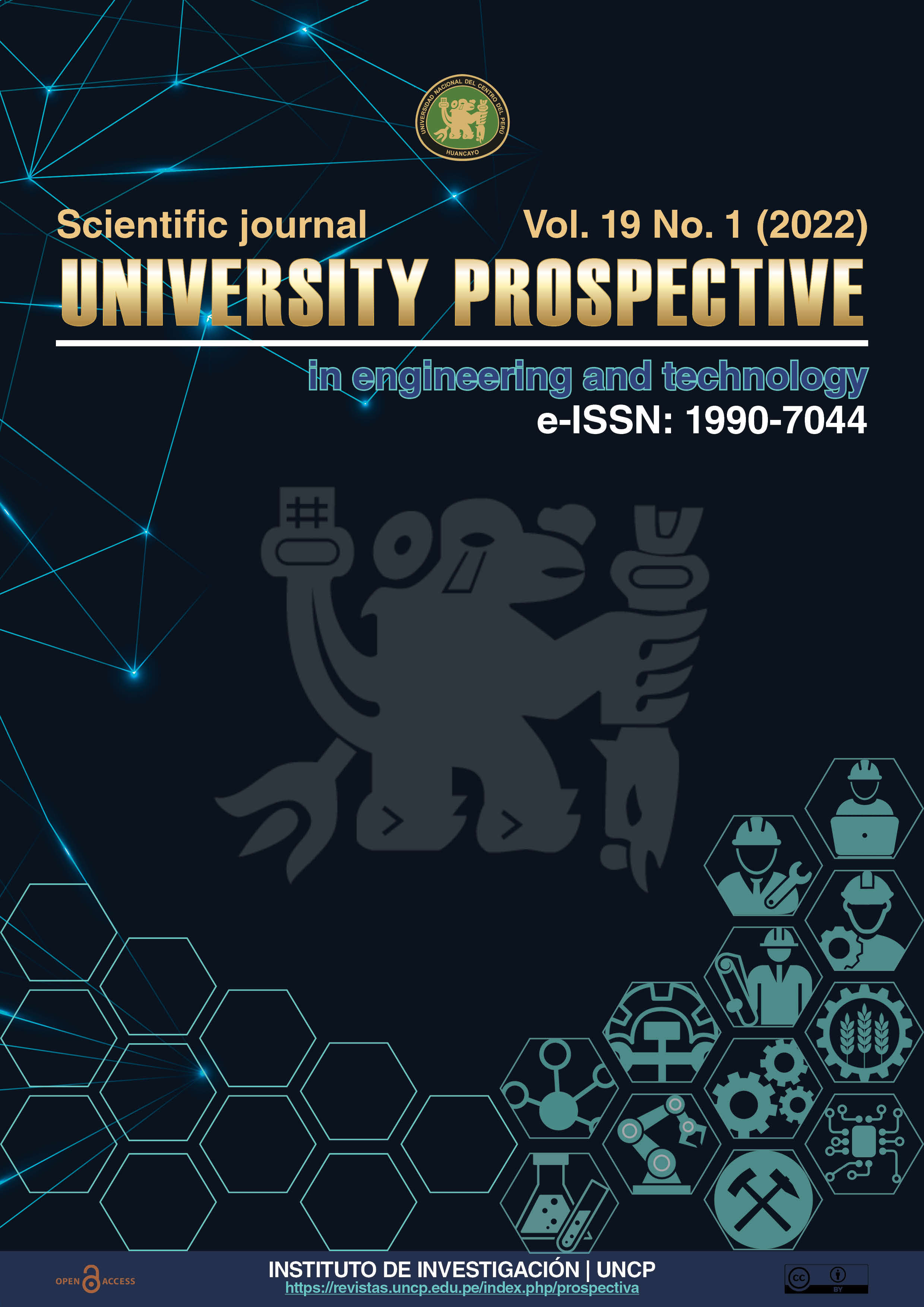Obtaining liquid fuel from plastic wastes
DOI:
https://doi.org/10.26490/uncp.prospectivauniversitaria.2022.19.1960Keywords:
Pyrolysis, Fuel, Plastic, Polyethylene, Hydrocarbons, Energy recoveryAbstract
The plastic waste coming from our way of living, originate a very serious environmental problem, due to the enormous quantities and the lack of solution to the problem of its final disposal. The present research consists of developing an industrial technology in the chemical technology laboratory of the chemical engineering faculty of the U.N.C.P. to obtain a liquid fuel from plastic waste in the city of Huancayo. For this purpose, plastic waste must be transformed into liquid fuels, taking into account the composition of the raw material and determining the physical and chemical parameters for this conversion. The experiments were carried out by modifying the temperature and reaction time in the reactor. When the pyrolysis temperature was raised beyond 400o C, the carbon chains decomposed into fractions where the typical hydrocarbons that make up fossil fuels are not identified
Downloads
References
Crocker, M. (2010, septiembre). Thermochemical Conversion of Biomass to Liquid Fuels and Chemicals. Royal Society of Chemistry.
Jung, S.-H., Cho, M.-H., Kang, B.-S., & Kim, J.-S. (2010). Pyrolysis of a fraction of waste polypropylene and polyethylene for the recovery of BTX aromatics using a fluidized bed reactor. Fuel Processing Technology, 91(3), 277-284. https://doi.org/10.1016/j.fuproc.2009.10.009
O’Connor, C., Forrester, R., & Scurrell, M. (1992). Cetane number determination of synthetic diesel fuels. Fuel, 71(11), 1323-1327. https://doi.org/10.1016/0016-2361(92)90061-R
Pankratz, T. M. (2000, septiembre). Environmental Engineering Dictionary and Directory. CRC Press. Ravishankar, R. F., & Raj, M. A. (2017). Conversion of Waste Plastics to Fuel Liquid Phase Recycle Technique. International Journal of Innovative Science and Research Technology, 2(9), 20-24. Consultado el 13 de diciembre de 2023, desde https://ijisrt.com/wp-content/uploads/2017/09/Conversion-of-Waste-Plastics-to-Fuel-Liquid-Phase-Contacting-Recycle-Technique-1.pdf
Rejas, L., Carreón, B., Ortiz, M., Llanes, L., & Copa, M. (2015). Generación de combustibles Líquidos a partir de residuos plásticos. Revista Ciencia, Tecnología e Innovación, 10(11), 635-642. Consultado el 13 de diciembre de 2023, desde http://www.scielo.org.bo/scielo.php?script=sci_abstract&pid=S2225-87872015000100005&lng=es&nrm=iso&tlng=es
Savgorodny, V. K. (1978, octubre). Transformación de plásticos.
Senthil, P., Bharathikumar, M., Prabhakaran, C., Vijayan, S., & Ramakrishnan, K. (2017). Conversion of waste plastics into low-emissive hydrocarbon fuels through catalytic depolymerization in a new laboratory scale batch reactor. International Journal of Energy and Environmental Engineering, 8(2), 167-173. https://doi.org/10.1007/s40095-015-0167-z
Downloads
Published
Issue
Section
License
Copyright (c) 2024 Prospectiva Universitaria

This work is licensed under a Creative Commons Attribution-NonCommercial-ShareAlike 4.0 International License.
Esta Revista es de acceso abierto a su contenido a través del Internet, poniendo a disposición de la comunidad científica los resultados de la investigación, de manera gratuita, para el intercambio del conocimiento desarrollado.
El contenidos de la Revista se distribuyen bajo la licencia Creative Commons Reconocimiento-NoComercial-CompartirIgual 4.0 Internacional.
![IconJournalPU [ENG] by Edgar Julian-Laime®](https://revistas.uncp.edu.pe/public/journals/1/pageHeaderLogoImage_en.png)







